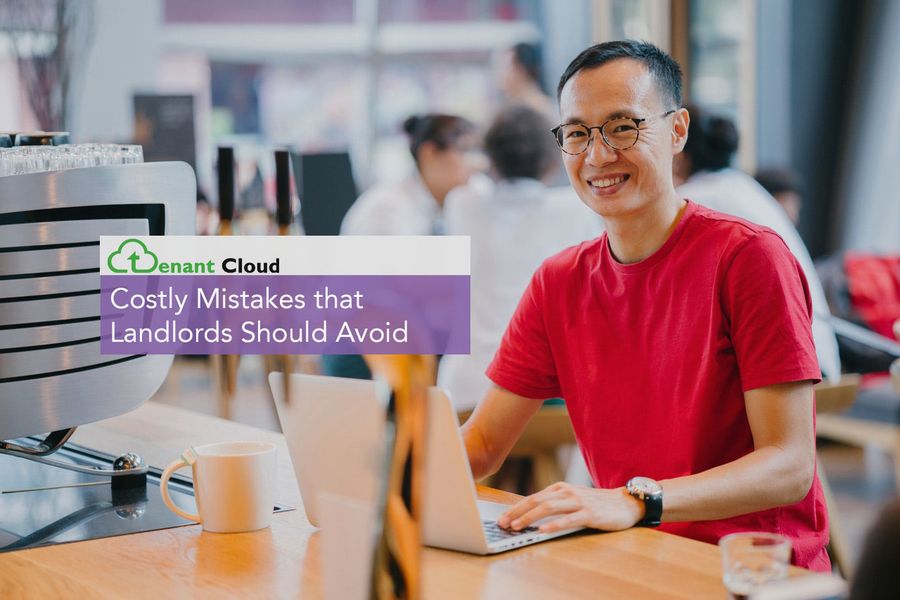Running a property can be expensive - in both time and money. We wanted to know how landlords keep their costs down, so we reached out to experienced landlords across the country for their perspectives and received back some intriguing and thought-provoking responses.
Here are their insights on how to avoid pricey mistakes:
“The most expensive mistake I see other landlords doing is raising tenants’ rents every year. We typically start with a two-year lease, and if our tenants choose to stay with us after that, we don’t raise rent if they were good tenants. If we know this tenant has never been late in two years and gets along with the other tenants in the building, I’d rather not increase the rent, and in turn, have the tenant renew his lease. Finding a new tenant runs you in danger of either having the apartment empty for a few days if you can’t find the right tenant in time or getting a tenant who is all of a sudden bringing in problems, like not paying rent on time or not getting along with other tenants. For us, it is also time intensive to find a new tenant as we show all apartments ourselves, vetting the applicants and meeting them in person, on top of drafting a new lease and going over the buildings rules.
“As a small landlord, it is important to us to get the right tenants into our apartments. I personally show all of our units and get a feel for each applicant. We have a thorough application with a document list and make sure applicants have never been late with payments on their credit report, for example. This should already give you a glimpse into how reliable they would be as your tenants in the future. Getting in the wrong tenants is one of the costly mistakes we’ve never had to encounter.”
-Clara Chan, Toshi and Clara Zen Estates, Brooklyn, New York
“Screening for a tenant who meets your pre-established standards and collecting the entire security deposit up front will go a long way to ensure that payments are on time, and that the unit will not be damaged. Even if it takes a little longer to find the best tenant, the bottom line will be better than entering into a chaotic business arrangement with a sketchy tenant and their friends and family.”
-Peggy Kelbel, Integrity Realty Inc., Madison, Wisconsin
“Landlords do not do proper screening as they are in a hurry to rent the unit. This is probably the most important part of renting a unit. Be sure to meet ALL the applicants before signing the rental agreement. I prefer month-to-month rental agreements just in case the tenants are a problem. With a lease you are stuck with them for a year. Also, make sure you have a rental agreement that includes anything that might come up, like smoking damage, pet damage, damage by family and visitors, etc.
“Make sure to give at least a 2% increase in rent each year. At least do a minimal increase so the tenants are not surprised when the rent goes up. A small increase is not enough for them to move elsewhere if they are happy where they are.”
-Joyce Tavares, JGT Properties, San Francisco Bay Area
After combing through these pieces of advice, one interesting thing to note is differing opinions: while one experienced landlord recommends a longer lease and no annual rental increase, another recommends a shorter lease term and a consistent rental increase. These differences may depend on preferences, experience with nuanced local market reactions, and personal time limitations—for instance, while one landlord may have more time or be more willing to put time toward finding new tenants, another may have less time to work with or may simply chose to spend time differently.
What’s important to keep in mind here is that both landlords emphasize the importance of these particular decision points, so be sure to explore what’s best for you and why regarding these basic approaches. Consulting with experienced local landlords may better help you decide what’s best for your particular situation. Once you’ve decided what’s best for you, you can use a service like TenantCloud to track your leases and rent increases, saving you time and effort.
What do you think are the most costly mistakes a landlord can make? Leave a comment below. We’d love to hear your thoughts or pieces of advice on this topic.
Rental Business And The Election: Six Keepers That Impact You
Main Property Management Software Users' Questions: Top 10 FAQs About TenantCloud Service
Best Property Management Software: Key Points About TenantCloud Users







